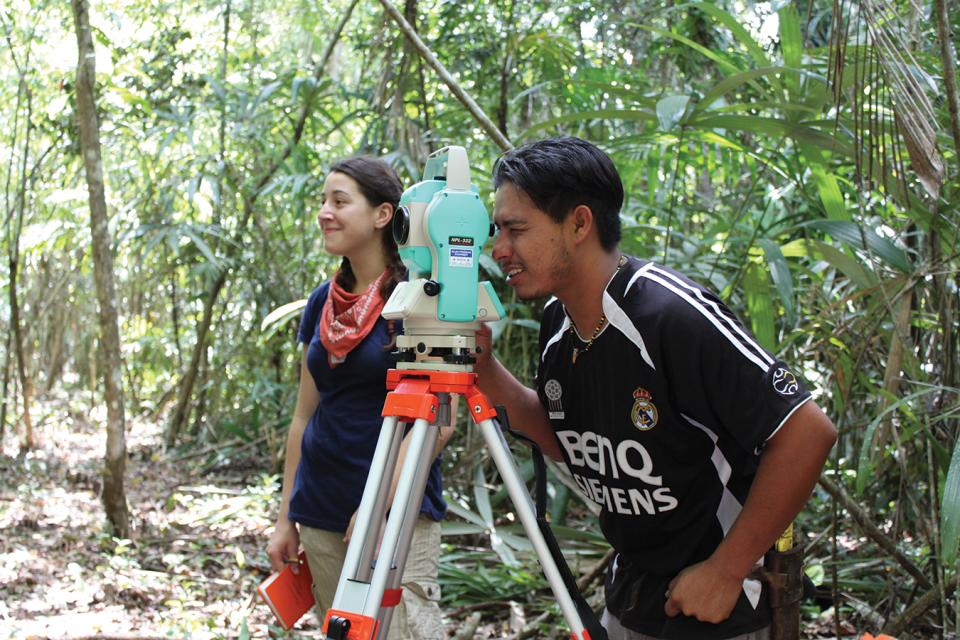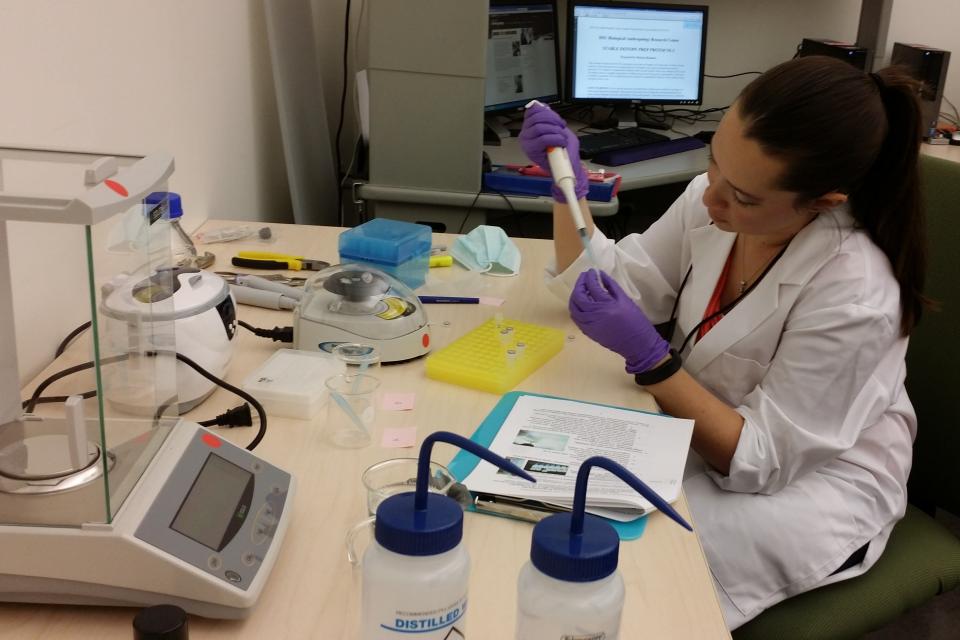Welcome

Department of Anthropology
Anthropology is a holistic science dedicated to the study of human biological and cultural diversity and evolution. It seeks to understand how people live in and respond to their environments. Anthropology includes the intersecting subfields of archaeology, biological anthropology, sociocultural anthropology, linguistic anthropology, and applied anthropology.
Anthropologists integrate methods and theories from across the sciences, arts, and humanities to study the many intriguing facets of humanity across space and time – from the earliest fossil humans to the more recent archaeological record and present-day cultures. Anthropology majors develop useful and marketable life skills that are broadly applicable to multiple career trajectories.
Explore the subfields of anthropology →
Degree Programs
Anthropology, B.S.
The Bachelor of Science in Anthropology includes concentration options in each subfield: archaeology, biological anthropology, linguistic anthropology, and sociocultural anthropology. A fifth concentration option, cross-disciplinary anthropology, is available for student's whose primary interests cross multiple subfields.
Applied Anthropology, M.A.
The Master of Arts in Applied Anthropology is a flexible degree program that can be completed fully online or hybrid. It is focused on building competitive, marketable skills for the application of anthropological perspectives, methods, and theories, and practices in a diverse array of careers in academic, professional, and global contexts.
Minors & Certificates
| Name | Degree Type |
| Anthropology Minor | Minor |
| Sustainable Food Systems Minor | Minor |
| Maritime Archaeology Certificate | Certificate |
Field Programs

Belize Archaeology Field School
The Belize Archaeology Field School involves field survey, excavation at several Maya sites, and laboratory experience working directly with excavated Maya artifacts. Field techniques, lectures on Maya culture history and instruction concerning artifact analysis are provided.
Poland Bioarchaeology Field Program
The Medieval Bioarchaeology Field Program in Żelewo, Poland is a summer field school run jointly by faculty from the University of Szczecin in Poland and other institutions in the US and Poland. The program is run in cooperation with the Slavia Foundation. It is a unique opportunity to excavate and analyze medieval remains as part of a salvage archaeological project due to intensive agriculture and natural processes in the region.
Macedonia Archaeology Project
The Macedonia Archaeology Research Project is an international collaboration between researchers in the US and Macedonia. The project focuses on the Hellenistic, or Macedonian, era and into the Roman conquest...
Cultural Resources Facility
The Cultural Resources Facility (CRF) is one of the largest cultural resources management (CRM) companies in California that is directly associated with a university. The CRF offers students hands-on field, lab, and office training in CRM, a major career area in applied archaeology.

International Experience
In addition to our anthropology field programs, many of our students take advantage of Humboldt’s exchange programs, which enable students to travel the world and make hands-on, international experience an integral part of education. Students may receive units of Anthropology major credit for international study.

Research Facilities & Collections
The Anthropology Department has multiple laboratories, a collections facility, and a simulated archaeological site, which include state-of-the-art technologies. Students and collaborating scientists use these facilities for classes, hands-on training, and to conduct a wide range of innovative research. Anthropology students have presented their findings at professional conferences, co-authored papers in peer-reviewed journals, and won awards and scholarships for their research.

Internships
Students have the opportunity to receive credit for engaging in resume-building internships as part of Anthropology programs. The Anthropology Department has many opportunities to get involved field and lab projects on and around campus. Anthropology students can also intern with local, national, and international agencies such as museums, tribal historic preservation offices, coroner’s offices, nonprofits, shelters, community action groups, advocacy organizations, zoos, conservation organizations, and more…

Anthropology Club
The Humboldt Anthropology Club is designed to promote a greater understanding of the academic discipline among students and enable them to explore their interests within the field. We are a fun and friendly group that holds meetings and plans events throughout the year that are related to the various aspects of anthropology.
